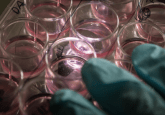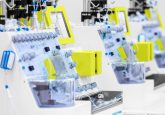Automation platforms in regenerative medicine: why, what, and when?
In this post, learn more about the why, what and when of automation in an expert podcast.
Reproducible manufacture of cellular products at high quality and clinical grade is essential for the realization of novel cell therapies. This applies to stem cell—derived products in regenerative medicine as well as CAR-T cell products in immuno-oncology, or gene—engineered hematopoietic stem cell grafts.
The clinical manufacturing of such cell products is a complex process. It requires many handling steps, skilled operators who have undergone extensive training, a dedicated clean room infrastructure and stringently controlled processing steps. These complex requirements restrict manufacturing to a limited number of sites and products, and drive up the manufacturing costs.
Automation can help to standardize and simplify manufacturing processes by reducing costs, enabling reproducibility and scalability, and guaranteeing a safe and clinically effective cell product.
Check out this interview with Dr Andrew Kaiser to learn more about the why, what and when of automation:
- Why do you need to automate your manufacturing process?
- What are your options for automation platforms?
- When should you start thinking about automation?
Moreover, Dr Andrew Kaiser will give you first-hand insights about process development on the CliniMACS Prodigy® Instrument (Miltenyi Biotec), a closed and automated platform for GMP-compliant cell manufacturing. It enables automation of a wide range of processing steps from cell culture, through cell separation and transduction, up to final product formulation, and can be used with various cell types, including ES and iPSC-derived cells, as well as mesenchymal and hematopoietic stem cells.






